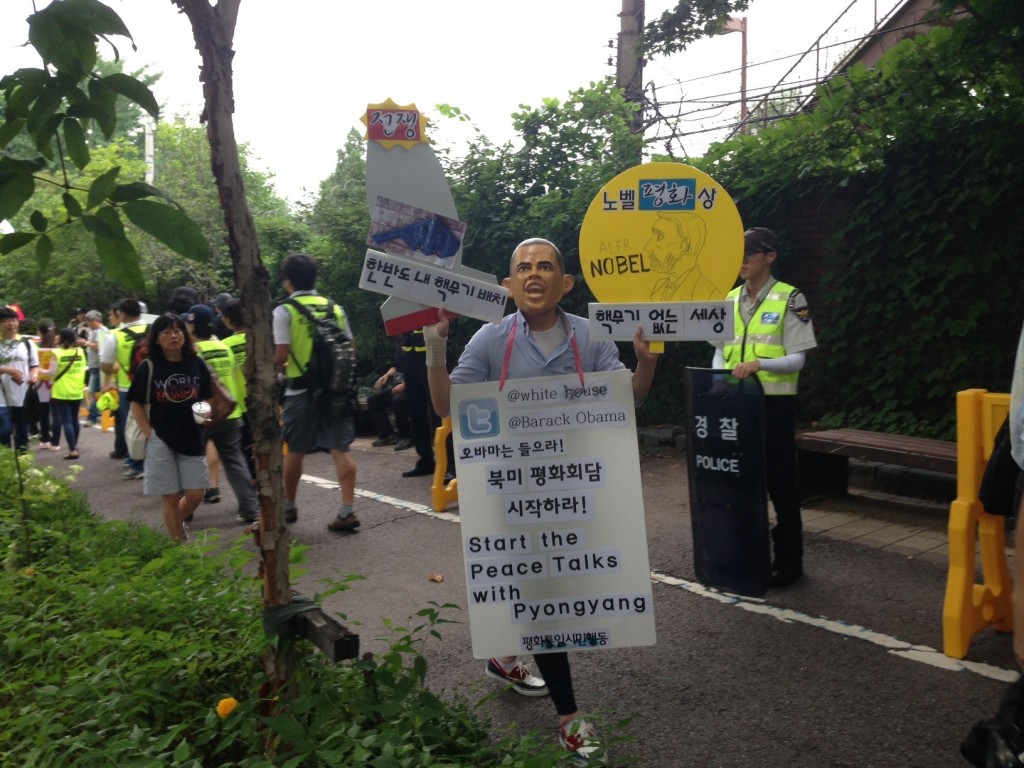
My latest, in The Nation:
[On July 27], President Obama became the first US president to attend the official armistice commemorations at the Korean War Memorial. Addressing a phalanx of US and South Korean generals and hundreds of veterans, he delivered one of the most militaristic speeches of his presidency. “Here, today, we can say with confidence that this war was no tie,” he declared. “Korea was a victory.”
Obama ended on a note of hubris, pledging that “the United States of America will maintain the strongest military the world has ever known, bar none, always. That is what we do.” Not once did he mention the fact that, for both North and South Korea, national unification has been a cherished—albeit distant—goal since 1972, when the Kim Il Sung and Park Chung Hee governments first laid out the principles for unification.
Obama’s embrace of the term “victory” marks a sharp and disturbing turn in US policy towards Korea. The Korean War, which has its roots in the tragic division imposed by the United States and the Soviet Union after World War II, was one of the most brutal conflicts of the twentieth century. It ended where it began in 1950, with the two sides bitterly divided. It also left the country a shattered ruin; North Korea was literally bombed into cinders by the US Air Force. In the end, 38,000 Americans, 180,000 Chinese and 3 million Koreans died.
Click here to read the rest.
